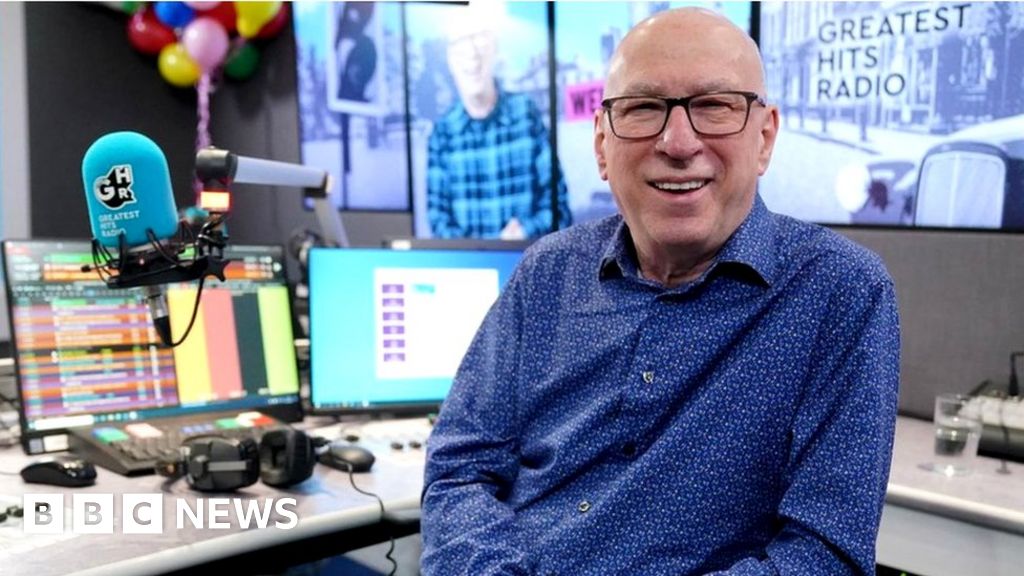- By Jamie McIvor
- BBC Scotland correspondent
Ken Bruce was signed to Greatest Hits Radio from BBC Radio 2
One of Scotland’s most popular commercial radio stations is to stop broadcasting on medium wave.
Greatest Hits Radio – which signed Ken Bruce from BBC Radio 2 earlier this year – will only be available on digital platforms in most of the country soon.
It is one of the most significant steps so far towards the end of traditional medium-wave broadcasting.
Greatest Hits Radio evolved from local stations including Clyde 2 and Forth 2.
The Scottish stations in its network share programmes but still provide separate local news, adverts and information.
The exact date of the switchover has still to be announced but listeners who tune in on medium wave are being warned of the impending change.
Most GHR listeners already use digital radios or other digital devices such as smart speakers.
Medium wave and long-wave broadcasting – known as AM broadcasting – has been used in Britain since the 1920s but many expect it to end in the next few years.
Although the sound quality is relatively poor, until the 1980s many portable radios were only able to pick up AM broadcasts. The signal can sometimes prove more robust in remote areas too.
FM and, more recently, digital radio caused its popularity to decline.
AM transmitters are now proving expensive to operate but reach a small and declining proportion of the audience.
No knock-on changes
The BBC still broadcasts Radio 4, Radio 5 Live and Radio Scotland on AM frequencies although the vast majority of its audience listen on digital platforms or FM.
The BBC has gradually closed some AM transmitters and will stop scheduling separate programmes on Radio 4’s AM frequency next year.
However, the corporation has not said when its AM broadcasting will actually end.
Greatest Hits Radio in Scotland has its roots in the first wave of commercial radio stations established between 1973 and 1990 such as Radio Clyde, Radio Forth and Radio Tay.
Owner Bauer Media said there would be no knock-on changes to its FM stations in Scotland, which include Clyde One and West FM, or other digital stations when GHR stops broadcasting on medium wave.
GHR stations in other parts of the UK will also stop AM broadcasting in the next few weeks. However in some areas, including the Borders and Dumfries and Galloway, the station is transmitted on FM.
The changes come as the UK government’s Media Bill works its way through parliament.
It is expected to lead to significant regulatory changes for commercial radio. It may make it easier for stations to change their formats or share programmes providing they maintain commitments to local news and information.

Robert Johnson is a UK-based business writer specializing in finance and entrepreneurship. With an eye for market trends and a keen interest in the corporate world, he offers readers valuable insights into business developments.








